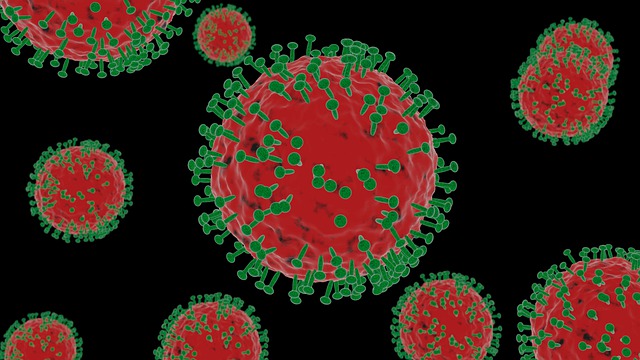Queen Mary University, London
A new study from Queen Mary University of London, published in The Lancet ’s EClinicalMedicine , has found that people can experience long-term symptoms, or "long colds," after acute respiratory infections who test negative for COVID-19. 19.
Long-term symptom profiles after COVID-19 versus other acute respiratory infections: an analysis of data from the COVIDENCE UK study Summary Background Long COVID is a well-recognized, although heterogeneous, entity. Acute respiratory infections ( ARI) due to other pathogens can cause long-term symptoms, but few studies compare post-acute sequelae between SARS-CoV-2 and other ARIs. Our objective was to compare symptom profiles between people with previous SARS-CoV-2 infection, people with previous non-COVID-19 acute respiratory infections (ARIs), and contemporary controls, and to identify long-term symptom clusters. Methods COVIDENCE UK is a prospective UK population-based study of acute respiratory infections in adults. We analyzed data from 16 potential long COVID symptoms and health-related quality of life (HRQoL), reported between January 21 and February 15, 2021, by participants not vaccinated against SARS-CoV-2. We classified participants as having prior SARS-CoV-2 infection or prior non-COVID-19 ARI (≥4 weeks prior) or no reported ARI. We compared symptoms by infection status using logistic and fractional regression, and identified symptom clusters using latent class analysis (LCA). This study is registered with ClinicalTrials.gov, NCT04330599. Results We included 10,171 participants (1311 [12.9%] with SARS-CoV-2 infection, 472 [4.6%] with ARIs not related to COVID-19). Both types of infection were associated with a higher prevalence/severity of most symptoms and decreased health-related quality of life (HRQoL) compared with no infection. Participants with SARS-CoV-2 infection had higher odds of experiencing problems with taste and smell (odds ratio 19.74, 95% CI: 10.53–37.00) and lightheadedness or dizziness (1.74 , 1.18–2.56) compared to participants with non-COVID-19 ARIs. Separate latent class analysis (LCA) models identified three symptom severity groups for each infection type. In the most severe groups (representing 22% of participants for both SARS-CoV-2 and non-COVID-19 ARIs), SARS-CoV-2 infection presented a higher likelihood of problems with taste and smell (probability 0.41 vs. 0.04), hair loss (0.25 vs. 0.16), unusual sweating (0.38 vs. 0.25), unusual heart rate (0 .43 vs. 0.33) and memory problems (0.70 vs. 0.55) than non-COVID-19 ARIs. Interpretation Both SARS-CoV-2 and non-COVID-19 acute respiratory infections (ARIs) are associated with a wide range of symptoms more than 4 weeks after acute infection. Research on the post-acute sequelae of ARI should extend from SARS-CoV-2 to include other pathogens. |
Comments
Some of the most common "long cold" symptoms included cough, stomach pain, and diarrhea more than 4 weeks after the initial infection. While the severity of an illness appears to be a key risk factor for long-term symptoms, more research is being done to establish why some people suffer long-term symptoms while others do not.
The findings suggest that there may be lasting health impacts following non- COVID acute respiratory infections, such as colds, influenza or pneumonia, that are currently unrecognized. However, researchers do not yet have evidence to suggest that the symptoms are of the same severity or duration as long Covid.
The research, funded by Barts Charity , compared the prevalence and severity of long-term symptoms after an episode of COVID-19 with an episode of another acute respiratory infection that tested negative for COVID-19. Those recovering from COVID-19 were more likely to experience lightheadedness or dizziness and problems with taste and smell compared to those who had a respiratory infection unrelated to COVID-19.
While long Covid is now a recognized condition, few studies have been conducted comparing long-term symptoms after infection with the SARS-CoV-2 coronavirus with other respiratory infections.
The study is the latest result from COVIDENCE UK, Queen Mary University of London’s national COVID-19 study, launched in 2020 and still being followed, with more than 19,000 participants enrolled. This study analyzed data from 10,171 UK adults, with responses collected using questionnaires and statistical analyzes performed to identify clusters of symptoms.
Giulia Vivaldi, COVIDENCE UK researcher at Queen Mary University of London and lead author of the study, said: “Our findings shed light not only on the impact of long Covid on people’s lives, but also on other respiratory infections. Lack of awareness, or even lack of a common term, prevents both reporting and diagnosis of these conditions.
“As research into long Covid continues, we must take the opportunity to investigate and consider the lasting effects of other acute respiratory infections.
“These ’long-term’ infections are very difficult to diagnose and treat mainly due to the lack of diagnostic tests and the large number of possible symptoms. “For a long time alone, more than 200 Covid cases have been investigated.”
Professor Adrian Martineau, Chief Investigator at COVIDENCE UK and Clinical Professor of Immunity and Respiratory Infections at Queen Mary University of London, said: "Our findings may resonate with the experience of people who have struggled with long-term symptoms after having had an infection. respiratory despite tests coming back negative for COVID-19 in a nose or throat swab.”
“Ongoing research into the long-term effects of COVID-19 and other acute respiratory infections is important because it can help us get to the root of why some people experience longer symptoms than others. “Ultimately, this could help us identify the most appropriate form of treatment and care for affected people.”
Victoria King, Director of Funding and Impact at Barts Charity , said: “ Barts Charity quickly supported COVIDENCE UK in response to the COVID-19 outbreak to help inform its risk factors and impacts. These findings highlight not only the long-term symptoms people experience after Covid infection, but also people after other acute respiratory infections. “As we learn more about long Covid symptoms and possible treatments, studies like this help raise greater awareness about other long-term respiratory infections that can go unnoticed.”
















